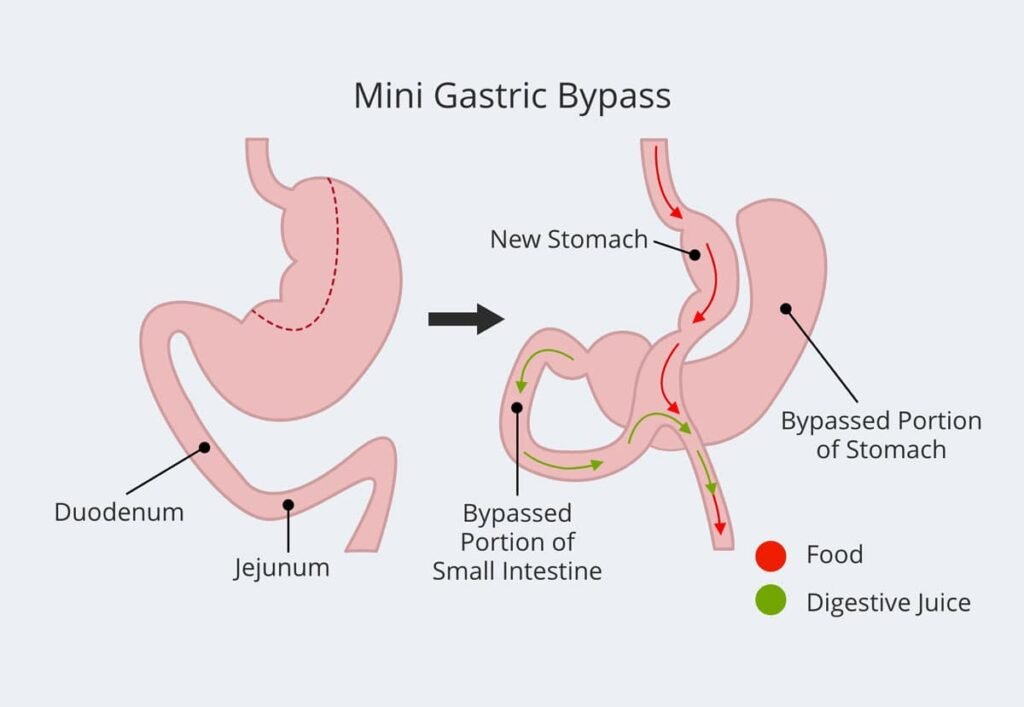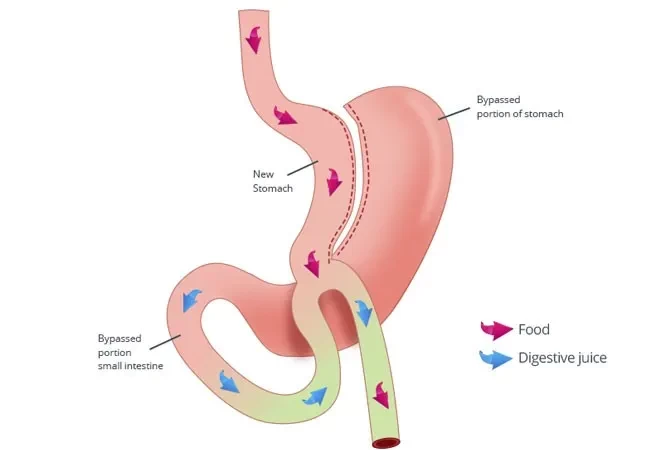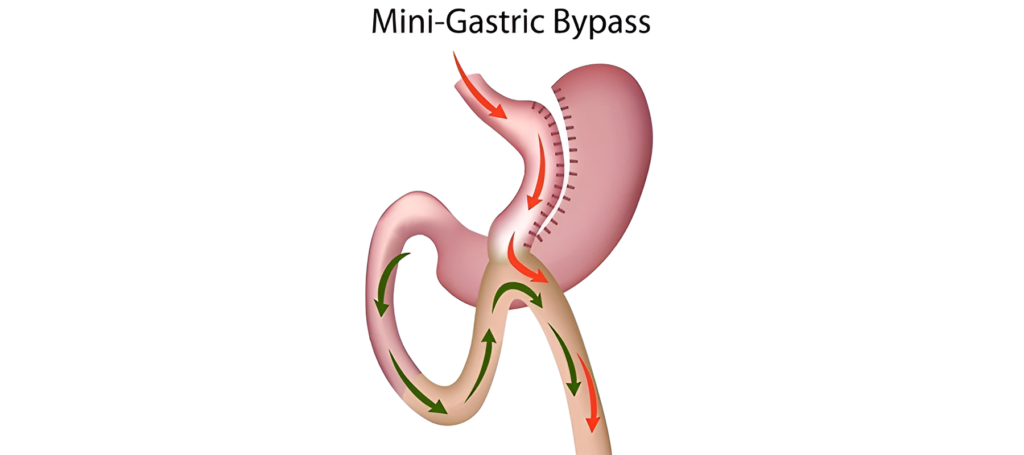Home > Mini Gastric Bypass (MGB)
Mini Gastric Bypass (MGB) is a weight loss surgery that involves creating a smaller stomach pouch and rerouting a portion of the small intestine to the new pouch. The procedure is similar to the traditional Roux-en-Y gastric bypass surgery, but with a shorter limb of the small intestine.
During the surgery, the surgeon creates a small stomach pouch and attaches it directly to the small intestine, bypassing the remaining stomach and upper portion of the small intestine. This restricts the amount of food that can be consumed and reduces the absorption of calories and nutrients, resulting in weight loss.
MGB is a minimally invasive procedure that typically requires a shorter hospital stay and has a faster recovery time compared to traditional Gastric Bypass Surgery. However, like any surgery, it carries risks and potential complications, and it is important to discuss the risks and benefits with a healthcare provider. MGB may be recommended for people with a body mass index (BMI) of 40 or higher, or a BMI of 35 or higher with obesity-related health problems who have not been successful with other weight loss methods.
Mini Gastric bypass (MGB), also known as an anstomosis gastric bypass (OAGB), is a type of weight loss surgery, designed to help individuals with obesity and improves obesity related conditions related to obesity, such as type 2 diabetes, high blood pressure and sleep apnea. Unlike traditional Roux-en-Y gastric bypass, MGB is a simple and sharp process that involves making a small, tube-like stomach bag and connecting it directly to a loop of the small intestine, which involves ignoring a large part of the stomach and upper intestine. As a result, both restrictions (food intake from small abdomen) and malabsorption (low calories and nutrients are absorbed). The process is minimal invasive, it has less operative time, and often loses rapid weight. However, lifelong vitamin supplementation and regular medical follow -up are required due to potential risks such as bile reflux, nutritional deficiencies or marginal ulcers. MGB has gained popularity for its effectiveness and simplicity, but it is important to undergo intensive evaluation to determine whether it is the right choice based on personal health requirements.


The Amazing Steps of our Treatment
1
Book your Appointment
2
In Person Counselling
3
Weekly Followup

get in touch
Give Your Loved Ones Quality Care You Can Trust

Dr. Achal Agrawal is a consultant gastrointestinal, laparoscopic, and bariatric surgeon in Indore.
Quick Link
get in touch
Copyright © 2024. All Rights Reserved.